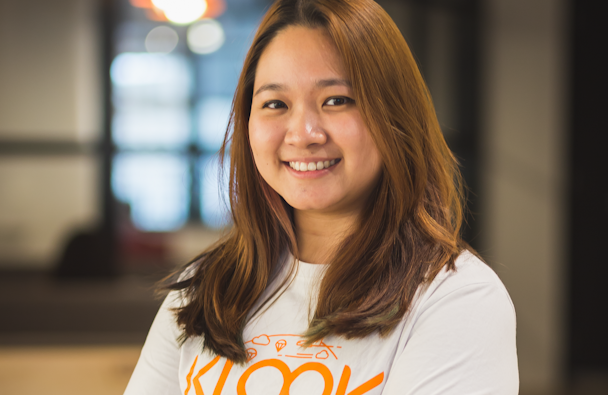
Advertisement

“There are definitely opportunities during the pandemic, but the skillsets you need to develop are different now.”
ith nominations for this year's Future 50 currently open, we profile last year's inductees. Sarah Wan, the south east Asia marketing director at travel platform Klook, has helped pull off a tour de force in what was a disastrous year for the travel and hospitality industry.
Covid-19 has decimated the travel industry. Tourism from, and within, Asia was expected to have a banner year in 2020, with Chinese tourists alone expected to make 160m trips abroad – 27% more than they did in 2015.
And although air corridors and localized booms for the stay-at-home sector have put smiles on the faces of some, the opportunity costs and financial losses have been enormous. The World Travel and Tourism Council, an organization that represents major global travel companies, projects a global loss of 75m jobs and $2.1tn in revenue.
So it has been an interesting time for Sarah Wan, the south east Asia marketing director at travel platform Klook, which allows users to book activities, tours and attractions. Having cut her teeth at Edelman, which she joined following an internship in 2012, in 2020 she helped Klook pivot from international jaunts to livestreaming and stay-at-home holidays.
Nominations for this year’s Future 50 are currently open. If you’d like to nominate yourself, or a colleague, for our list of the best rising stars and emerging marketers in the world, follow this link.

Considering the upheaval of 2020, Wan looks back to a fond success from a mere 12 months ago when the Klook team organized Singapore’s first ever travel festival: “It was offline, free and targeted at independent travelers.”
She says that, in the Singapore market, travel fairs are dominated by traditional travel agents. “But we wanted to break the mold and to modernize it a little bit. We actually threw an entire carnival and brought together some famous travel influencers, like Nas Daily, to connect like-minded travelers and give them inspiration for their next holiday. We were anticipating maybe 15,000 people over two days, but 30,000 people showed up!”
As fond a memory as it is, Wan knows it is a long way behind her. In Singapore alone there is Singapore Airlines saying it will cut around 4,300 positions, while Resorts World Sentosa has let go of close to 400 employees.
Wan says the locking of borders forced Klook to switch focus to domestic tourism, meaning it teams had to be agile and understand what people in their local markets really wanted to do. Persuading Singaporeans to find something new in their own city turned out to be tough, but having worked as Klook’s marketing lead for Singapore, it was a market she knew well. “It has many key attractions and different types of tours, but when you are trying to appeal to locals in their own market, it really takes a different level of understanding of the product and consumer preferences to be successful.”
The travel industry had been gradually shifting online and the pandemic has given it a massive push. And those early to adopt digital solutions have been well-prepared for a sudden influx of customers shopping online after lockdowns.
Klook has invested its tech resources into developing its own livestreaming service to replace its live events calendar, and taken a leaf from the books of neighboring Chinese retail giants such as Alibaba and Tencent. Called Klook Live, the service allows third-party tour and accommodation providers to reach Klook’s wider audience directly and sell them vacations and holidays via promotions and special offers – all enabled by a suite of accessible mobile tools.
The company hopes that the new platform will transform the travel industry by building a community of like-minded individuals who want entertaining and educational travel and lifestyle content. As a sales tool it has been pretty successful, with Wan saying it has brought Klook twice the number of conversions it enjoys from similar activity on Facebook Live, meaning new revenue in a difficult environment. “There are definitely opportunities during the pandemic, but the skillsets you need to develop are different now. Livestreaming – which we once thought was a very isolated, kind of Chinese phenomenon – is now booming across the industry. In fact, brands are all scrambling to get a foothold in this space.”
With the sector looking optimistically towards 2021 and a potential reprieve, Wan voices a hope for the industry and the jobs that depend on it. “We hope that people remain interested in joining the travel industry because when this pandemic is over, that demand for travel will boom back. What is important right now is for the industry to keep making opportunities. In the past, travel was aspirational. Now it’s a necessity.”
Nominations for this year’s Future 50 are currently open. If you’d like to nominate yourself, or a colleague, for our list of the best rising stars and emerging marketers in the world, follow this link.